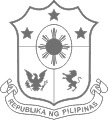Philippines champions sustainable innovation at Rakuten Fashion Week Tokyo 2025
Indigenous fibers, coconut innovation, and visual art take center stage in PH-JP collaboration
Tokyo, Japan – 5 September 2025 – The Philippines took center stage at Rakuten Fashion Week Tokyo 2025, Asia’s most influential fashion platform, with its official presentation themed “Beyond the Loom: Philippine Indigenous Textiles, Visual Art, Coconut & Pineapple Innovation in Sustainable Fashion.”

Organized by the Philippine Trade and Investment Center (PTIC) in Tokyo under the Department of Trade and Industry (DTI), the showcase highlighted how culture, creativity, and sustainability converge through circular design, heritage artisanship, and cutting-edge Japanese technology.The runway unveiled twenty-four (24) contemporary streetwear looks by Filipino designers ALODIACECILIA, Maison Métisse, and. ARCHIVES, alongside Japanese brand Uttrykk. At the heart of the collection were original artworks by Filipina artist Maria Angelica Tan, whose bold color palettes and layered symbolism were digitally reimagined onto fabric through sustainable printing technology from Japan. These were then crafted into garments using pure handmade pineapple fiber and blended textiles of pineapple with recyclable materials, transforming agricultural waste into high-fashion textiles that can scale commercially.

Coconut beads, coir and shell embellishments, jewelry, bags, and shoes completed the ensembles—extending the narrative of circular design and women-led artisanship. “From pineapple leaves to the runway, from waste to fiber of the future,” the collection demonstrated how Filipino creativity is fusing tradition and innovation to carve a path in eco-luxury fashion that resonates with Japan’s style-savvy youth and global markets.
The showcase was complemented by an immersive exhibit featuring indigenous textiles and biodiversity-inspired designs from Phase 1 of the project, where artworks by Monica Castillo were printed onto blended fibers and crafted into bespoke formalwear by leading Filipino designers.

Also on display were innovative coconut-based products—from home décor, wellness items, to fashion accessories. A coconut tasting nine-dish menu complemented the exhibit, proving how the Philippines’ “tree of life” sustains creativity across multiple sectors. Coconut-inspired refreshments were also served, giving guests a literal taste of the country’s versatility.
This two-phase journey was conceptualized by Special Trade Representative (STR) Dita Angara-Mathay, Commercial Counselor of PTIC Tokyo, as part of PTIC’s broader creative industry initiatives. Phase 1 emphasized formal and traditional design, while Phase 2—debuting on the Rakuten runway in partnership with Manila Fashion Forward (MFF) and the Japan Fashion Week Organization (JFWO)—embraced modernity, streetwear, and youth-driven aesthetics. Together, the phases tell a story of how heritage women’s weaving traditions and innovative eco-technologies evolve side by side.
“This project began as a vision to show how Philippine creativity—rooted in heritage and shaped by innovation—can stand shoulder to shoulder with the best in the world,” said STR Angara-Mathay. “By connecting artists, designers, farmers, and women artisans with innovators, we are building a new value chain for sustainable fashion and design, positioning the Philippines as a rising force in the eco-luxury economy.”
With more than 30,000 industry stakeholders attending Rakuten Fashion Week Tokyo—including buyers, investors, curators, and media—the Philippines’ participation is both milestone and springboard. It not only celebrates Filipino artistry on Asia’s premier fashion stage but also sets the tone for ambitious collaborations leading to the 70th Anniversary of Philippines–Japan Diplomatic Relations in 2026. ♦
Date of Release: 11 September 2025





















































